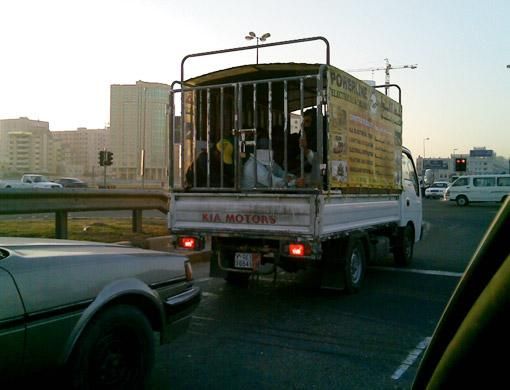Manama: Bahrain's labour minister has reiterated the government's full commitment to the application of a ban on transporting labourers in open trucks.
"The zero-tolerance reinforcement of the law will start on January 1 as previously announced and the government will not compromise on this. It is part of an inexorable drive to improve the working and living conditions of the labourers in Bahrain," Majeed Al Alawi said.
"The government this year maintained a decision it introduced in 2007 to ban construction companies from making labourers work in the scorching heat during the months of July and September," he told the Third Arabian Conference for Occupational Safety and Health.
The move was initially opposed by some construction companies, and labour ministry inspectors reported them to courts where they were fined.
Al Alawi said that the government's zero-tolerance pledge was caused by the non-compliance of companies and establishments with the existing rules.
"The problem we are facing is not the absence or the insufficiency of regulations, but rather their non application. Now the labour ministry is seriously working on addressing occupational safety and is using Arab and international expertise to achieve the best results possible," Al Alawi said. "At the same time, we are promoting awareness about the significance of safety and health and pushing companies to comply with the regulations."
The labour and interior ministries in 2007 drew up a new plan to reinforce the ban on driving workers in open trucks, insisting that companies should be concerned about their safety and transport them on vehicles with adequate seats and seat-belts.
However, the application of the ban was postponed after the business community complained that taking workers by buses to their workplaces and back was not practical and that it would cause huge financial burden for the businessmen.
Rights activists rejected the business arguments as "blatant exploitation of the most vulnerable section of the society" and called for tighter controls.













